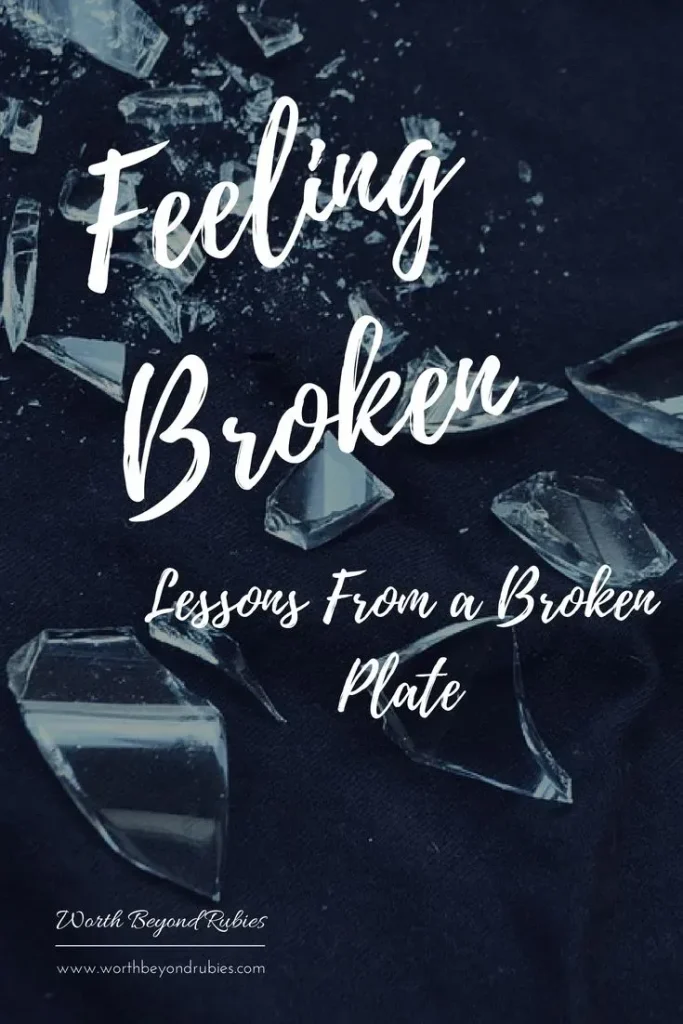Lessons from broken things are often overlooked in our fast-paced lives, yet they hold profound insights into the philosophy of brokenness and the acceptance of imperfection. When we embrace the concept of wabi-sabi, we begin to see that beauty can be found in our flaws and the fractured aspects of our lives. Instead of always striving for perfection, acknowledging brokenness can lead to a deeper appreciation of our experiences and the things around us. Fixing broken items can become an act of creativity and care, revealing hidden stories and emotions woven into the fabric of our daily lives. By engaging with lessons from broken things, we can cultivate resilience, discover beauty, and learn to celebrate our imperfect journey through life.
Understanding the insights gleaned from damaged and incomplete items can radically reshape our perspective. The notion of finding wisdom in brokenness invites us to delve into the realms of fragility and resilience, allowing for a richer appreciation of the imperfections that surround us. By examining our relationships with these imperfect objects, we uncover lessons about the acceptance of our own flaws and the beauty within them. Embracing this mindset encourages us to explore ideas akin to the Japanese philosophy of wabi-sabi, as well as the significance of nurturing broken aspects rather than discarding them. Ultimately, engagement with our surroundings through the lens of brokenness can facilitate personal growth and foster a deeper connection with our shared human experience.
Lessons from Broken Things: Finding Beauty in Imperfection
When we consider lessons from broken things, we often uncover insights that transcend mere materiality. The Japanese philosophy of wabi-sabi captures this essence beautifully, advocating for an appreciation of imperfection and transience. Just as a cracked teacup can become a work of art through the process of kintsugi, patched with gold, our broken experiences can evolve into narratives of resilience and strength. Embracing brokenness, whether it be in physical objects or personal attributes, allows us to find beauty in flaws, reminding us that the journey of healing and acceptance is as valuable as the ideal of perfection.
Furthermore, broken things serve as poignant reminders of our humanity. Each dent and scratch carries a story, inviting us to reflect on our past experiences. This acceptance of imperfection fosters a deeper connection with the world around us. For instance, a broken toy—once discarded—can symbolize childhood memories and the inexorable passage of time. Learning to appreciate these imperfections can enrich our lives, guiding us towards a philosophy that values authenticity over an unattainable ideal.
The Philosophy of Brokenness and Self-Discovery
Delving into the philosophy of brokenness leads us to profound self-discovery. The act of confronting brokenness—be it within ourselves or the objects we cherish—forces us to examine the underlying truths of our existence. As Martin Heidegger posits, we often take functioning objects for granted, but when confronted with their failure, we are invited to shift our focus and truly engage with them. This revelation is not only applicable to physical items, but it also resonates within our personal lives, where societal expectations might falter, pushing us to reconsider our values and beliefs.
In literature, this introspection is beautifully illustrated through characters who highlight societal flaws, leading to a reevaluation of their identities and relationships. Much like these characters, we can undergo a transformation when faced with our brokenness. By acknowledging our imperfections and the fractures in our lives, we cultivate awareness and empathy. This process is not merely about fixing what is broken but embracing who we are within our flawed narratives.
Acceptance of Imperfection: A Pathway to Growth
Acceptance of imperfection is crucial in our pursuit of growth and self-improvement. Life, by its very nature, is filled with unpredictability, and attempting to control every outcome often leads to frustration. By recognizing the beauty in our failures and the flaws in our surroundings, we pave a pathway to personal development. Each setback, whether a malfunctioning appliance or a missed opportunity, serves as a valuable lesson that contributes to our resilience. This empowering mindset encourages us to step outside our comfort zone and embrace new experiences without the fear of failure.
Moreover, embracing imperfection cultivates a compassionate outlook both towards ourselves and others. When we acknowledge our shortcomings, we can relate to the struggles of those around us. This shared understanding fosters a supportive community that recognizes the importance of empathy and kindness. By accepting the inevitability of brokenness, we create an environment where growth flourishes, and relationships deepen, ultimately enriching our lives.
Fixing Broken Items: A Metaphor for Change
The act of fixing broken items can serve as a powerful metaphor for personal change and growth. When we encounter a broken object—be it a family heirloom or a favorite gadget—we often feel compelled to repair it, which symbolizes our desire to restore value and functionality. This instinct reflects our innate human nature to heal and mend not just physical objects, but also the emotional and relational aspects of our lives. Engaging in the act of fixing encourages us to invest time and effort, teaching us patience and resilience in the face of adversity.
In this way, fixing broken items transcends mere physical repair; it becomes an exercise in self-reflection and transformation. Each repair process involves examining the object’s history, understanding its significance, and choosing to breathe new life into it. This experience mirrors our journeys of self-discovery, where we identify what is worth preserving in our lives and what requires change. Hence, the act of repair not only restores functionality but also deepens our connection to the stories and lessons embedded in brokenness.
Finding Beauty in Flaws: The Wabi-Sabi Aesthetic
Wabi-sabi, the Japanese aesthetic that celebrates imperfection, teaches us to find beauty in flaws and transience. This philosophy encourages us to appreciate the uniqueness of every experience, no matter how marred or broken it may seem. In a world that often values perfection, embracing wabi-sabi invites us into a space of acceptance, where we can find joy in the irregularities of life. An old pot with cracks, for instance, is more than just a decorative item; it serves as a reminder of the beauty that exists amid chaos and entropy.
Additionally, adopting the wabi-sabi mindset allows us to redefine success and happiness. Instead of striving for an unachievable ideal, we learn to cherish the small imperfections that enrich our narratives. This perspective encourages us to enjoy the present moment and recognize that our flaws do not diminish our worth; rather, they enhance our individuality. By embracing our broken pieces and celebrating their stories, we foster a deeper appreciation for life itself.
The Impact of Brokenness on Relationships
Brokenness has a profound impact on relationships, prompting both introspection and a deeper understanding of one another. When we confront the imperfections within ourselves, we often find reflections of similar struggles in those around us. This shared experience can foster connections built on compassion and empathy. For example, when two individuals acknowledge their brokenness, they create a safe space where vulnerability is welcomed, allowing for honest communication and healing.
Moreover, relationships can thrive in the acceptance of brokenness. Just as a repaired object tells a story of resilience, so too do relationships that have weathered challenges. Couples who navigate difficulties together often find that these experiences strengthen their bond, teaching them about trust, patience, and forgiveness. By embracing both the flaws and strengths in themselves and each other, they cultivate a deeper appreciation for the journey they share, ultimately leading to more authentic and meaningful connections.
Reflections on Personal Growth through Brokenness
Reflections on brokenness encourage an ongoing dialogue about personal growth. When we interact with our broken elements, we often uncover hidden strengths and insights that propel us forward. For instance, the discomfort arising from our shortcomings can motivate self-improvement and exploration. By acknowledging our imperfections, we begin to shed the weight of unrealistic expectations, paving the way for a more authentic version of ourselves. This journey of self-discovery is further enriched by the acceptance of our flaws, which instills a sense of resilience and determination.
Moreover, reflecting on our experiences with brokenness allows us to appreciate the lessons learned along the way. Each setback or failure enhances our capacity for empathy and understanding, fostering a mindset that values growth over perfection. As we lean into our brokenness, we can identify patterns, adjust our approaches, and discover the beauty that arises from vulnerability. This practice not only illuminates our potential but also reinforces the idea that everyone, in some way, is navigating their journey of brokenness towards wholeness.
The Journey from Brokenness to Acceptance
The journey from brokenness to acceptance is one characterized by growth, resilience, and profound self-discovery. Recognizing our broken aspects—the parts that feel flawed or diminished—invites us to confront difficult truths about ourselves. This process can be transformative, turning what once felt like a burden into a source of strength. Acceptance does not imply resignation but rather an acknowledgment that brokenness is a fundamental part of the human experience, leading to an enriched understanding of our own existence.
As we navigate this journey, we often discover new perspectives that shift the way we view the world. The acceptance of brokenness encourages us to cultivate patience and empathy, both towards ourselves and others. Recognizing that everyone carries their own burdens fosters a deeper connection with those around us, creating a community of support and understanding. Ultimately, embracing the journey from brokenness to acceptance allows us to find joy and meaning in our imperfections, reinforcing the belief that within every fracture lies the potential for beauty and growth.
Frequently Asked Questions
What can we learn from the philosophy of brokenness?
The philosophy of brokenness teaches us that recognizing and accepting imperfection can lead to deeper self-awareness and appreciation for life. By embracing brokenness, we learn that flaws can reveal beauty, promote resilience, and encourage reflection, allowing us to understand ourselves and our experiences more profoundly.
How does wabi-sabi relate to the lessons from broken things?
Wabi-sabi is a Japanese aesthetic that finds beauty in imperfection and transience. It teaches us to appreciate the unique character of broken things, viewing their flaws as integral to their stories. This acceptance promotes a deeper emotional connection with our possessions and encourages us to embrace the changes life brings.
In what ways does accepting imperfection enhance our relationships with broken items?
Accepting imperfection enhances our relationships with broken items by fostering patience and creativity. Rather than discarding flawed objects, we can learn to repair or repurpose them, reflecting our personal growth and adaptability. This practice not only supports sustainability but also imbues our surroundings with stories of resilience.
What role does fixing broken items play in the philosophy of brokenness?
Fixing broken items plays a crucial role in the philosophy of brokenness. It symbolizes our ability to confront challenges and reflects our commitment to preserving memories associated with these objects. Through repair, we acknowledge the value in what once was, while simultaneously embracing the changes that come with wear and tear.
How can finding beauty in flaws change our perspective on life?
Finding beauty in flaws can change our perspective on life by encouraging us to appreciate the journey rather than striving for perfection. This mindset leads to greater acceptance of both ourselves and others, fostering empathy and enabling us to find joy in the unexpected, ultimately promoting a more fulfilling and resilient life.
What insights can we gain about ourselves from the broken things in our lives?
The broken things in our lives can provide valuable insights about our resilience, adaptability, and the nature of our relationships. They remind us of our imperfections and prompt personal reflection. By examining how we respond to these disruptions, we can learn about our priorities, desires, and the areas in which we seek growth.
How does the act of living with broken items promote self-acceptance?
Living with broken items promotes self-acceptance by illustrating our capacity to embrace imperfections. It challenges us to confront our flaws and to see them not as hindrances but as features that add to our character. This acceptance can lead to a deeper understanding of our own vulnerabilities and encourage compassion towards ourselves and others.
Can the concept of brokenness lead to positive changes in our lives?
Yes, the concept of brokenness can lead to positive changes in our lives by fostering resilience and adaptability. Embracing our brokenness allows us to reevaluate our values, prioritize what truly matters, and cultivate a mindset of gratitude and mindfulness, ultimately enhancing our overall well-being and connection to the world.
| Key Points |
|---|
| Brokenness can illuminate personal characteristics and induce reflection. |
| The author prefers using a broken camera due to its simplicity and lack of distractions. |
| Different types of brokenness evoke various emotional responses, ranging from frustration to nostalgia. |
| Broken objects encourage a re-evaluation of societal norms and personal values. |
| Philosophies like wabi-sabi embrace the beauty of brokenness, celebrating imperfections. |
| Brokenness can lead to self-discovery and personal growth. |
| Acknowledging and accepting brokenness can foster compassion and open-mindedness. |
Summary
Lessons from broken things are profound, teaching us about resilience, reflection, and growth. The inevitability of brokenness prompts us to confront not only our possessions but also our perceptions and societal conventions. Embracing this brokenness allows for a deeper understanding of ourselves and the world, ultimately turning perceived failures into avenues of enlightenment and connection.



